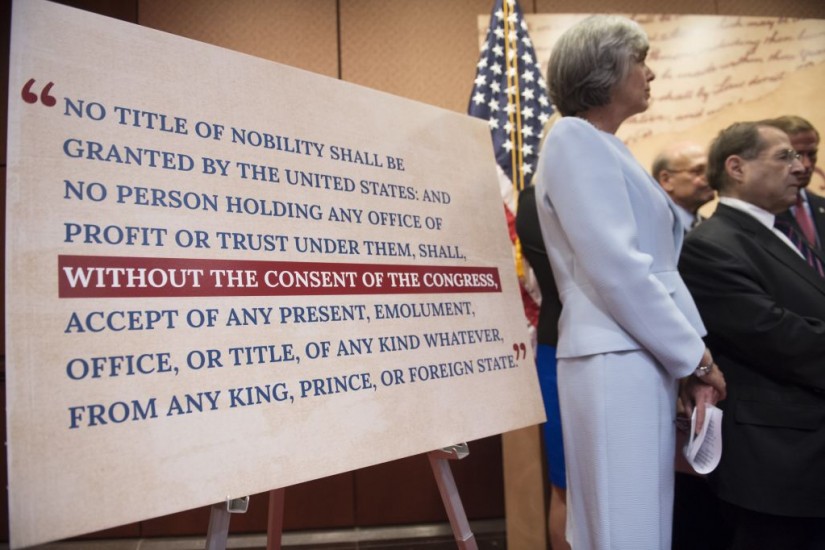Editor's Note: Subsequent to the publication of the following piece, its authors posted this correction to their characterization of Seth Barrett Tillman's court filings about the scope of the Emoluments Clause. You can read more about the issue here.
The Framers of the Constitution were deeply committed to preventing the corruption of their new republic. In fact, their anger over the corruption of the British monarchy and Parliament was a driving force behind the American Revolution. So the Framers built systemic safeguards to prevent American officials from falling prey to corruption.
In recent months, one of those safeguards, the Emoluments Clause, has received a great deal of attention. This clause states that “no Person holding any Office of Profit or Trust under the United States, shall, without the Consent of Congress, accept any present, Emolument, Office, or Title, of any kind whatever, from any King, Prince, or foreign State.” Lawsuits against President Donald Trump contend that the clause bars him from continuing to accept payments from foreign governments through the Trump Organization’s many holdings.
Joshua Blackman and Seth Barrett Tillman, authors of an amicus brief defending Trump, assert counterintuitively that this clause does not apply to the office of the president. Why? They articulated their position in the New York Times last week: First, they argue that the office of the president is not “an office under the United States.” Second, they point out that Presidents Washington and Jefferson accepted a handful of diplomatic gifts. (For Washington, it was barely a literal handful: a key and a painting.) Blackman and Tillman claim we should pay more attention to what presidents did than what the Constitution plainly states. They are wrong on both points.
First, there is no historical text hinting that the Framers shared Tillman’s and Blackman’s idiosyncratic interpretation. In fact, Edmund Randolph—who would go on to be the nation’s first attorney general—explained at the Constitutional Convention of 1787 that the clause was meant “to exclude corruption and foreign influence” and “to prohibit any one in office from receiving or holding emoluments from foreign states.” During the Virginia ratifying convention, Randolph was even more explicit about the problem of “the president receiving emoluments from foreign powers.” He described the reasoning behind the clause, saying that “it is impossible to guard better against corruption” than by having a president who “is restrained from receiving any present or emoluments whatever.”
Randolph’s sage words suggest that it is highly implausible that the Framers would have exempted the president from a constitutional safeguard against the title-trading tendencies and potential influence buying of competing European powers.
